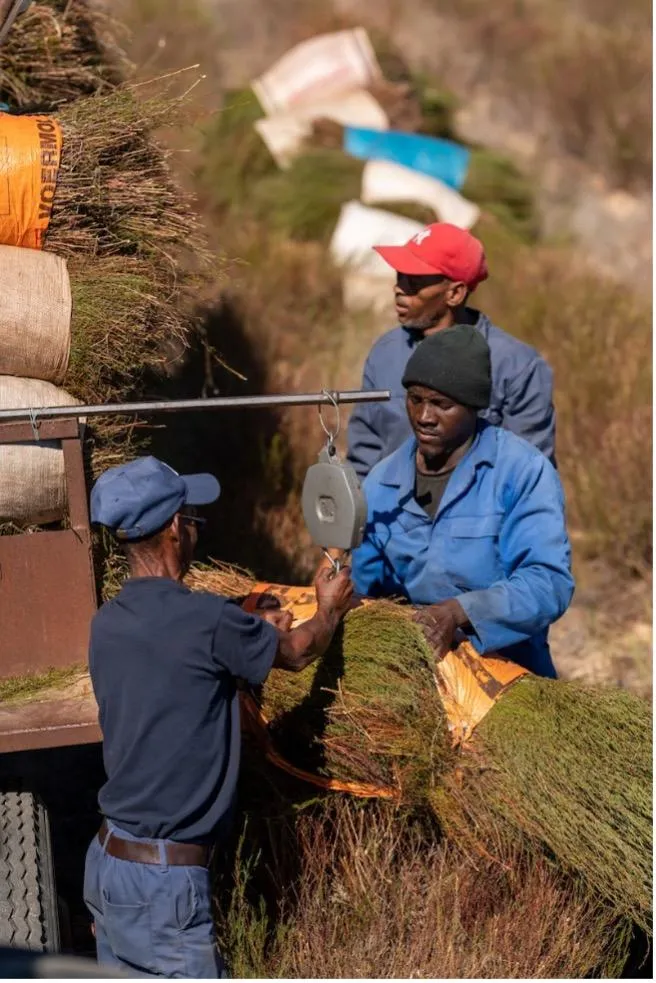
Dawie de Villiers, chairperson of the SARC, emphasised that their paramount priority was to support Rooibos producers and exporters during this challenging period.
Image: Supplied
The South African Rooibos Council (SARC) has called for the reduction or the complete removal of the 30% tariff imposed by the United States on Rooibos products.
The SARC on Tuesday said the US currently accounted for approximately 5% of total Rooibos exports, and the tariff posed a considerable threat to the industry’s financial health and market viability.
Dawie de Villiers, chairperson of the SARC, emphasised that their paramount priority was to support Rooibos producers and exporters during this challenging period.
“We are actively engaging with stakeholders and exploring all opportunities to ensure Rooibos remains competitive in the US market, while also strengthening our presence in other international markets,” he said.
De Villiers highlighted the unique nature of Rooibos, which is exclusively cultivated in a small region of the Western Cape, South Africa, stating that it posed no competitive threat to the US agricultural production or domestic manufacturing.
“As such, it poses no competitive threat to American agricultural production or domestic manufacturing,” he said.
“In fact, more than 90% of Rooibos exported to the US is shipped in bulk for blending, packaging and marketing by American companies, which supports value addition, stimulates local business activity and creates jobs within the US market.”
De Villiers acknowledged the importance of the US market, noting its size and potential for growth, yet pointed out that Rooibos enjoyed a diversified global customer base, with Europe and Asia emerging as significant markets
“It is too early to quantify the full financial impact, but the introduction of a 30% tariff is expected to put downward pressure on Rooibos export revenues to the US.
“Producers may face reduced margins and some exporters could lose competitiveness against other herbal tisanes in the American market. That’s why our focus is on early, proactive engagement with all stakeholders to push for a resolution, while at the same time expanding opportunities in other international markets.”
The Rooibos industry has, over the past decade, worked to broaden its international footprint.
De Villiers said that Rooibos was now exported to more than 30 countries, with Japan and Europe among its largest markets.
“While the US tariff poses a challenge, the industry’s diversification strategy means it is not overly reliant on one market. That said, entering and expanding in new markets takes time and investment, and tariffs like these make existing market access more complex,” he said.
Rooibos, or Aspalathus linearis, is lauded not only for its unique flavour but also for its health benefits. Rich in antioxidants such as aspalathin and quercetin, Rooibos supports overall wellness, with studies suggesting potential benefits for heart health, cholesterol levels, and blood sugar regulation.
The SARC pointed out that as consumers increasingly seek natural, plant-based products, the global demand for Rooibos is poised for growth. Efforts are underway to secure protected designation of origin (PDO) status for Rooibos, ensuring that only produces from designated areas can carry the esteemed name.
Francois Rossouw, the CEO of the Southern African Agri Initiative (Saai), said that reducing or removing the 30% tariff could significantly enhance the competitiveness of Rooibos in the US market.
“This could lead to increased export volumes, benefiting local farmers and the overall industry. Engaging with key stakeholders like the dtic and the US Embassy is essential for advocating for our products and ensuring that our farmers can thrive in international markets,” he said.
“The US is one of the largest markets for Rooibos tea, and reducing tariffs could open up further opportunities for growth. It allows us to tap into a consumer base that is increasingly interested in health and wellness products, which Rooibos fits perfectly. Strengthening our presence in this market can lead to better prices for our farmers and more sustainable livelihoods.”
Farming association TLU SA general manager, Bennie van Zyl, said that it was crucial for every commodity, even the SARC, to address the challenges of the 30% US tariffs.
“The tariffs present a challenge to import to the United States. I feel the government has to come to the table with a balanced approach on what they can do with the United States and other countries in the world are willing to interact with them for both imports and exports for both sides,” Van Zyl said.
BUSINESS REPORT